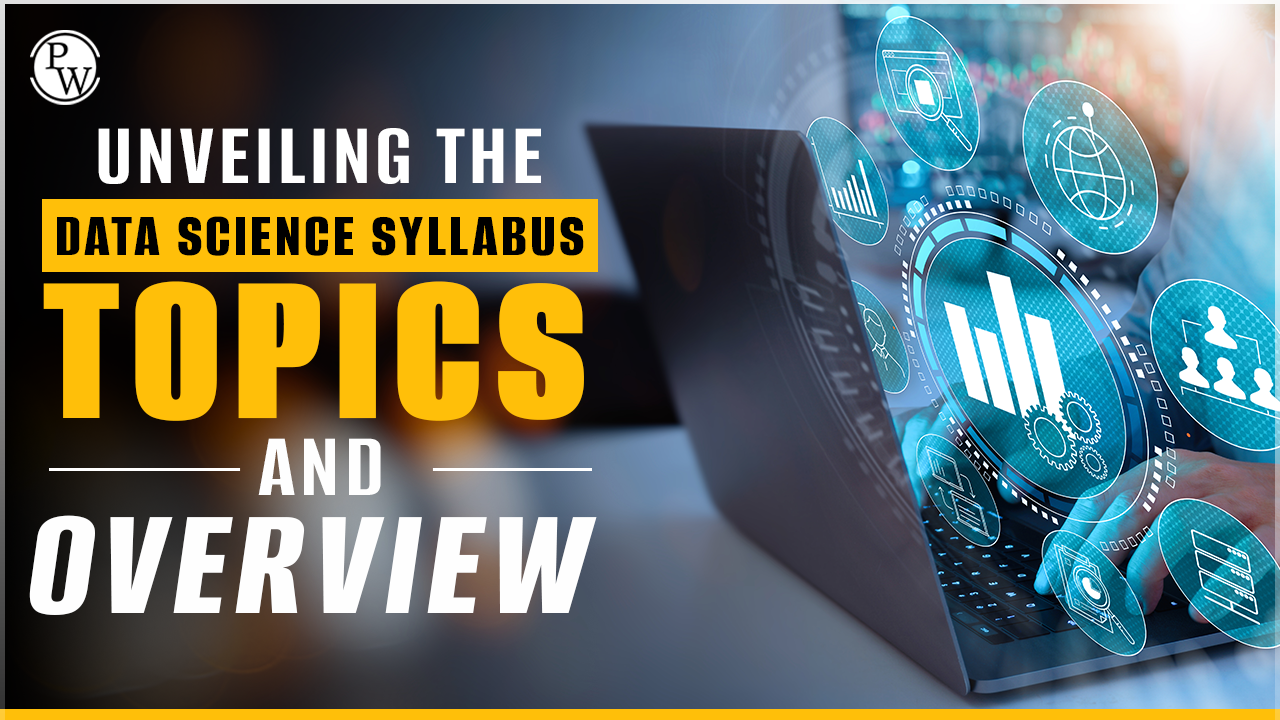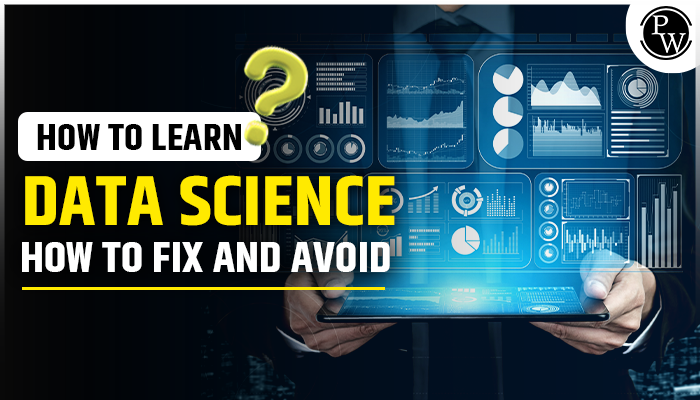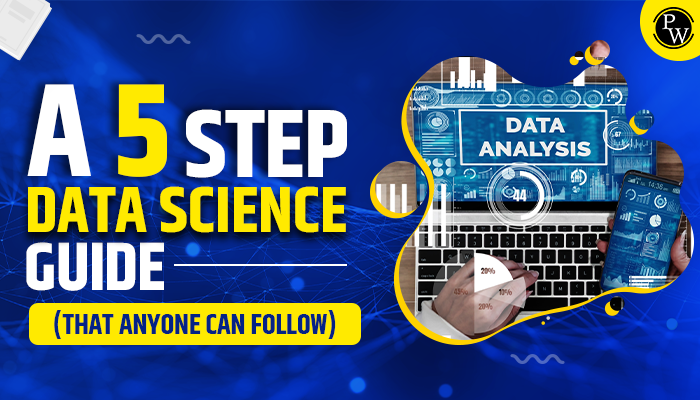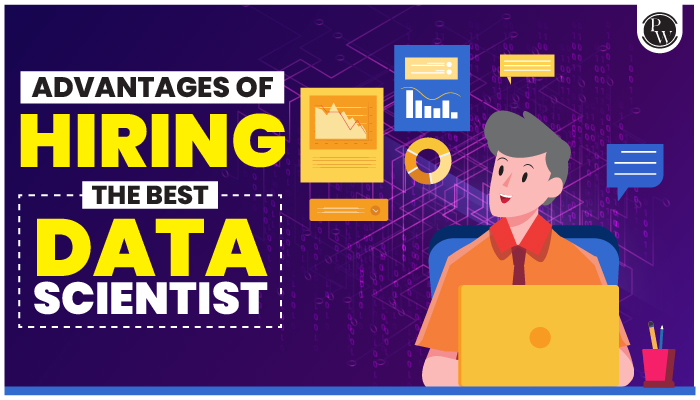Data Science Syllabus: In the fast-paced, data-driven world of today, data science has emerged as a pivotal discipline with applications spanning various industries. Whether you are considering a career in data science or simply wish to comprehend the essence of this field, this blog aims to take you on an extensive journey through the data science syllabus, fundamental subjects, and topics covered in data science programs. Moreover, we will compare some of the top data science programs, delve into crucial areas within this field, discuss prerequisites, and explore the significance of coding.
What Is a Data Science Program?
A data science program is a structured educational or professional curriculum designed to equip individuals with the knowledge and skills required to derive valuable insights from data. Data science integrates statistics, maths, computer science, and domain knowledge. Its core aim is to equip graduates to collect, analyse, and decipher data for practical problem-solving.
Key Subjects in Data Science Syllabus
Here are the key subjects that you’ll find in almost every good data science program:
- Probability and Statistics: This forms the foundation of data science, providing the basis for statistical analysis, hypothesis testing, and probability theory. A grasp of these principles is pivotal for effective data analysis.
- Business Intelligence: In data science, business intelligence focuses on utilising data to facilitate informed decision-making within the corporate domain. It imparts skills for crafting intuitive dashboards and comprehensive reports, thereby aiding organisations in data-driven decision-making.
- Programming Languages: Proficiency in programming languages like Python and R is fundamental. These languages serve as the primary tools for data manipulation, analysis, and model development.
- Machine Learning: Machine learning lies at the core of data science, encompassing the creation of algorithms that enable systems to learn from data and make predictions. Machine learning finds extensive applications across various industries.
- Data Manipulation: Data manipulation is an indispensable skill within data science. This subject teaches techniques for cleaning, transforming, and preparing data for analysis, bridging the gap between raw data and actionable insights.
Key Topics in the Best Data Science Syllabus
These are some of the most important topics in data science programs:
- Data Science Introduction: This course marks the beginning, offering a brief overview of crucial principles, methods, and common tools used in this field.
- Mathematics and Stats Mastery: A strong grasp of maths and statistics is vital for data analysis and creating models. Concepts like linear algebra, calculus, and inferential statistics provide the foundational knowledge for data science.
- Machine Learning: Machine learning is the heart of data science, encompassing both theory and practical application. It involves studying and using various algorithms to enable machines to learn and make predictions.
- Artificial Intelligence: Artificial Intelligence blends human-like decision-making into machines, spanning applications like NLP and computer vision.
- Coding: Programming proficiency in Python, R, and SQL is crucial. Coding skills empower data scientists to manipulate data, create algorithms, and craft software solutions.
- Applied Mathematics and Informatics: Applied mathematics and informatics bridge theory and practice. They aid data scientists in applying mathematical principles and computational informatics to real-world issues.
- Machine Learning Algorithms: Understanding machine learning algorithms, from basic linear regression to intricate neural networks, is vital for modelling and predictive analytics.
- Data Warehousing: Data warehousing and database management systems are integral to data storage and retrieval. This topic covers concepts like data warehouses, ETL (extract, transform, load) processes, and data integration.
- Data Mining: Data mining techniques enable data scientists to unearth hidden patterns and relationships within datasets. This knowledge is crucial for knowledge discovery and decision support.
- Data Visualization: Data visualisation involves presenting data in graphical and visual formats. Effective data visualisation techniques are essential for conveying insights to non-technical stakeholders and facilitating data-driven decisions.
- Cloud Computing: As data volume increases, cloud computing has become a significant component of data science. Familiarity with cloud platforms like AWS and Azure is essential for scalable data storage, processing, and deployment.
- Data Structures: An understanding of data structures is crucial for efficient data manipulation, storage, and retrieval. Concepts encompass arrays, linked lists, trees, and hash tables.
- Scientific Computing: Scientific computing applies computational techniques to solve scientific and engineering problems, often involving mathematical models and simulations.
- Scholastic Models: Constructing models that accurately represent complex real-world phenomena is a key skill in data science, requiring an understanding of domain-specific details crucial for model accuracy.
- Project Deployment Tools: In real-world data science projects, deploying models and solutions is a critical step. This topic covers the tools and practices used to take data science from development to production.
- Predictive Analytics and Segmentation: Predictive analytics involves using data to make predictions about future events, while segmentation entails grouping data for targeted decision-making. Both are central to data-driven decision support.
- EDA: Exploratory Data Analysis (EDA) involves visually and statistically summarising data. Its purpose is to unveil patterns and create hypotheses. EDA is commonly the first step in data analysis, assisting data scientists in grasping the dataset’s properties.
Data Science Syllabus Topics in Detail
In data science, you’ll explore many subjects. They help you become an expert in drawing insights from data. These areas include both theory and practical skills. Here are some of them:
Big Data
Today, data is vast, fast, and diverse, leading to big data. Big data means extremely large and complex datasets. Traditional tools can’t handle them. Data scientists turn to distributed computing frameworks like Hadoop and Apache Spark. These tools process data in parallel, manage massive datasets, and enable advanced analytics, like machine learning and predictive modelling.
Business Intelligence
Business intelligence (BI) collects, stores, and analyses business data for informed decisions. It involves data warehousing, modelling, visualisation, and reporting. BI tools help businesses understand their operations, customers, and market trends, guiding strategic planning and performance improvement.
Machine Learning
Machine learning is at the core of data science, a part of artificial intelligence (AI). It creates algorithms for computers to learn from data and make predictions. It’s divided into categories like supervised, unsupervised, and reinforcement learning. These algorithms apply in various fields, from e-commerce recommendations to language processing and image recognition in computer vision.
Problem Solving
Data science is inherently about problem-solving. As a data scientist, you’re presented with real-world challenges across various domains. Your role is to apply data science techniques to address these problems. For example, you might work on optimising healthcare outcomes through predictive analytics or enhancing marketing strategies by analysing customer behaviour. Problem-solving is not just about crunching numbers; it’s about identifying meaningful patterns in data and deriving actionable insights to drive decision-making.
Programming Languages
Programming languages are crucial in data science. Proficiency in them is vital for data tasks. Two popular languages are:
- Python: Recognized for its versatility and extensive library support, Python is a top choice for data tasks like machine learning and visualisation.
- R: A specialised language for statistics and data visualisation, R is favoured by researchers and statisticians.
- In addition to Python and R, SQL is often used for database management, enabling data scientists to query and manage relational databases efficiently.
Statistics
Statistics forms the cornerstone of data analysis. It provides the tools for understanding patterns in data, making predictions, and performing hypothesis testing. In data science, you’ll encounter various statistical techniques, including:
- Descriptive Statistics: These methods summarise and describe data, providing insights into its central tendencies and variations.
- Inferential Statistics: Inferential statistics help make predictions and inferences about a population based on a sample of data.
- Statistical Testing: Hypothesis testing allows data scientists to assess the significance of observed differences or associations in data.
Statistics is crucial for understanding uncertainty, drawing conclusions from data, and conducting robust analyses.
These topics, when explored in depth, prepare data scientists to navigate the complexities of real-world data challenges.
Comparison of the Best Data Science Programs
When considering data science programs, you’ll find various options tailored to different educational backgrounds and career goals. Here’s a more detailed comparison of some popular programs:
- PW Skills Full Stack Data Science Pro: The PW Skills Full Stack Data Science Pro program is an all-encompassing curriculum that empowers students with the essential skills to construct end-to-end data-driven solutions. It stands out due to its job assurance program and hands-on learning opportunities, making it an excellent choice for those dedicated to a data science career.
- IIT Data Science Program: The Indian Institutes of Technology offer a comprehensive data science program known for its strong theoretical foundation and practical applications. Graduates from these programs are often sought after by top organisations globally. The program emphasises both theoretical rigour and hands-on experience.
- BSc Data Science Program: A Bachelor of Science (BSc) in data science suits undergraduates with a keen interest in data and analytics. It furnishes a fundamental data science education, readying students for advanced studies or starting careers in data science.
- B.Tech. Data Science Program: A Bachelor of Technology (B.Tech) program with a focus on data science combines engineering principles with data science concepts. This hybrid program often appeals to students with a strong inclination towards both technology and data analytics.
- MSc Data Science Program: A Master of Science (MSc) program in data science offers a more in-depth and specialised training in the field. It typically caters to individuals with a strong quantitative background and prepares them for advanced data science roles or research positions.
The choice of program largely depends on your educational background, career aspirations, and the level of depth you seek in your data science education.
What Are the Important Areas in Data Science?
Data science is a broad and diverse field, encompassing various areas and domains, each with its unique focus and applications. Important areas within data science include:
- Data Engineering: Data engineering readies, stores, and manages data for analysis. Data engineers craft data pipelines and storage solutions used by data scientists.
- Big Data Engineering: Big data engineering tackles massive, intricate datasets beyond conventional tools. It utilises technologies like Hadoop, Spark, and NoSQL databases.
- Data Mining: Data mining techniques are used to extract valuable information and patterns from large datasets. This field is closely related to machine learning and is applied in areas such as market basket analysis, fraud detection, and recommendation systems.
- Database Management: Database management involves the design, administration, and optimization of databases where data is stored. To manage data effectively, one must grasp relational databases, NoSQL databases, and query languages.
- Predictive Analytics: Predictive analytics involves using data and statistical methods to forecast future events or trends. This technique finds extensive applications in fields such as finance, marketing, and healthcare for forecasting purposes.
- Data Analytics: Data analytics is the process of examining and interpreting data to gain insights. It often involves descriptive statistics, data visualisation, and dashboard creation to help organisations make informed decisions.
- Machine Learning and Cognitive Computing: Machine learning, a facet of AI, develops data-driven algorithms for predictions. Cognitive computing mimics human thought processes in AI.
These domains in data science demand distinct skills, and professionals may specialise based on their passions and career objectives.
What Are the Prerequisites for a Data Science Course?
Before joining a data science program, it’s vital to grasp the prerequisites. While program demands may differ, typical prerequisites comprise:
- Strong Background in Mathematics: Data science heavily relies on mathematical concepts such as linear algebra, calculus, and statistics. A solid foundation in these subjects is essential.
- Mastery of Stats and Probability: Understanding statistical methods and probability theory is vital for analysing data, testing hypotheses, and making informed choices.
- Competence in Coding: A strong command of programming languages is essential in data science. Python and R stand out as top choices for data analysis, while SQL is crucial for effective database management.
- Data Structures and Algorithms: Knowing data structures and algorithms proves advantageous for streamlining data handling and analysis.
- Analytical Thinking and Problem-Solving Acumen: A strong analytical mindset and problem-solving skills are crucial in data science, which revolves around addressing challenges and data-driven decision-making.
Remember that certain programs might entail extra prerequisites, like specific courses or certifications. It’s crucial to examine the entry criteria for the program you’re keen on to guarantee you fulfil them.
Is Coding Needed in Data Science?
Yes, coding is an integral and non-negotiable part of data science. Proficiency in programming languages is not only beneficial but necessary. Coding skills are fundamental for various aspects of a data scientist’s work, including:
- Data Manipulation: Data scientists use programming languages to clean, transform, and prepare data for analysis. This often involves tasks like filtering, merging datasets, and handling missing values.
- Analysis and Modeling: Coding is essential for implementing machine learning algorithms, statistical analysis, and data modelling. Data scientists write code to build, train, and test predictive models.
- Automation: Coding allows data scientists to automate repetitive tasks, such as data extraction, preprocessing, and report generation. This efficiency is a significant advantage in data science work.
- Visualisation: Programming is essential for creating data visualisations and interactive dashboards that effectively communicate insights to stakeholders.
- Custom Solutions: Data scientists often need to develop custom software solutions to address unique data challenges. This can involve creating data pipelines, web applications, or APIs.
Python is one of the most commonly used programming languages in data science due to its extensive libraries and tools designed for data-related tasks. R is another popular language for its focus on statistical analysis and visualisation.
Final Thoughts
Data science programs offer a comprehensive curriculum that equips individuals with the skills to work with data and make data-driven decisions. The core subjects and topics covered in these programs provide a strong foundation for a successful career in data science. Whether you’re a beginner or an experienced professional, there is a data science program suitable for your educational background and career goals.
Data science is a diverse field, encompassing various areas, and coding is a fundamental skill. By exploring these subjects in detail, you can gain the knowledge and expertise needed to excel in the ever-evolving world of data science.
If you want to build a lucrative career in Data Science, the PW Skills Full Stack Data Science Pro Course is ideal for you. Our course covers all the essential skills and concepts that you need to succeed in your career. So, enrol now and start your journey to a successful career in data analytics!
Data Science Syllabus FAQs
What's the difference between data science and machine learning?
Data science and machine learning differ. Data science encompasses various data tasks, including machine learning. Machine learning focuses on predictive algorithms.
Do I need a strong maths background for data science?
A strong maths foundation helps in data science, but many programs teach necessary maths concepts. Proficiency in statistics and probability is essential.
Which programming languages are common in data science?
Common languages in data science are Python and R. Python is versatile, while R is tailored for statistics. SQL is used for database management.
Is learning big data tech necessary for data science?
Learning big data tech is valuable for handling extensive datasets. Skills in Hadoop and Spark can advance your data science career.
What are prerequisites for data science courses, and does my background matter?
Prerequisites for data science courses usually involve strong maths, stats, programming, and problem-solving skills. Backgrounds accepted vary, such as computer science, engineering, and social sciences.





